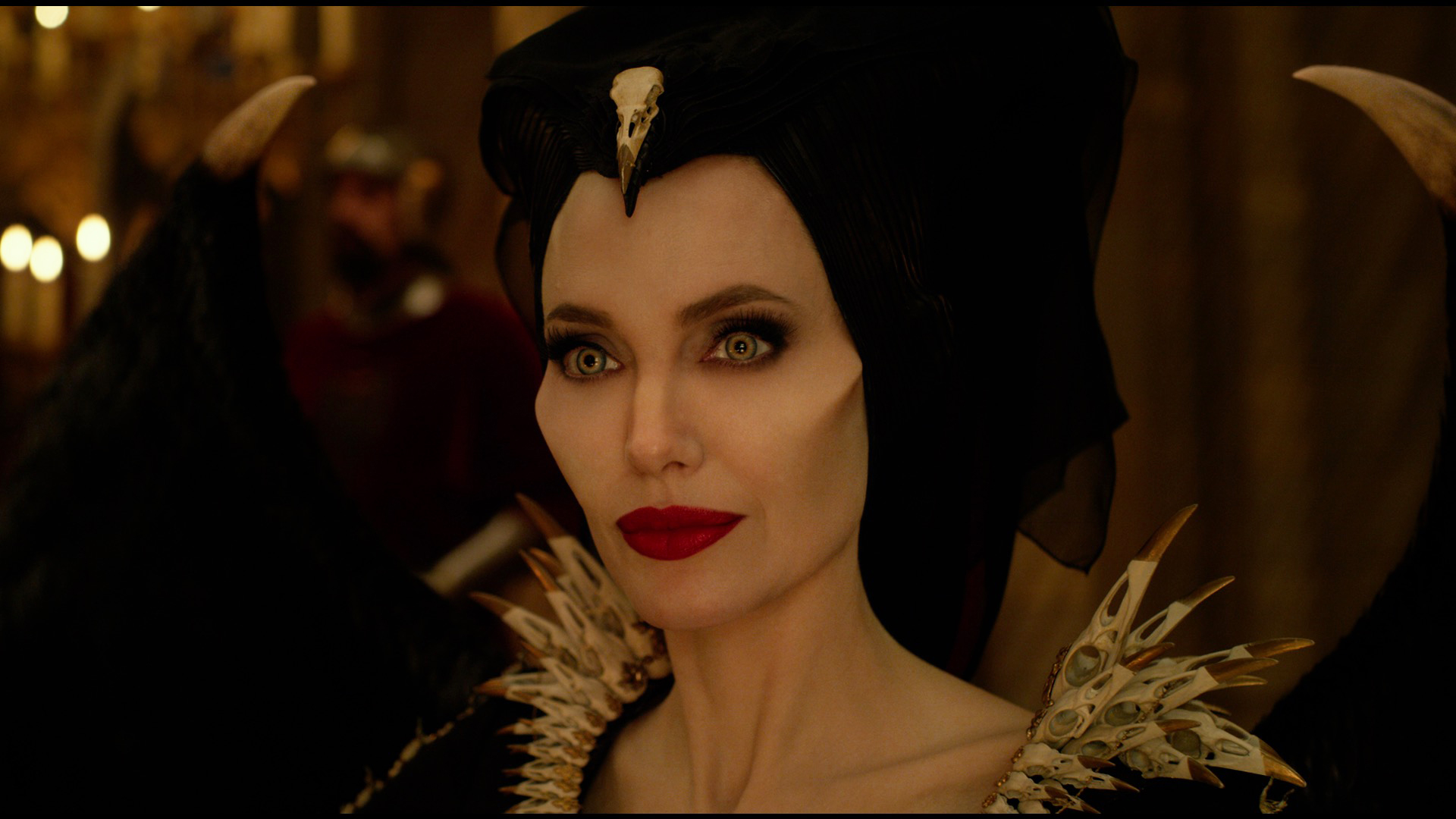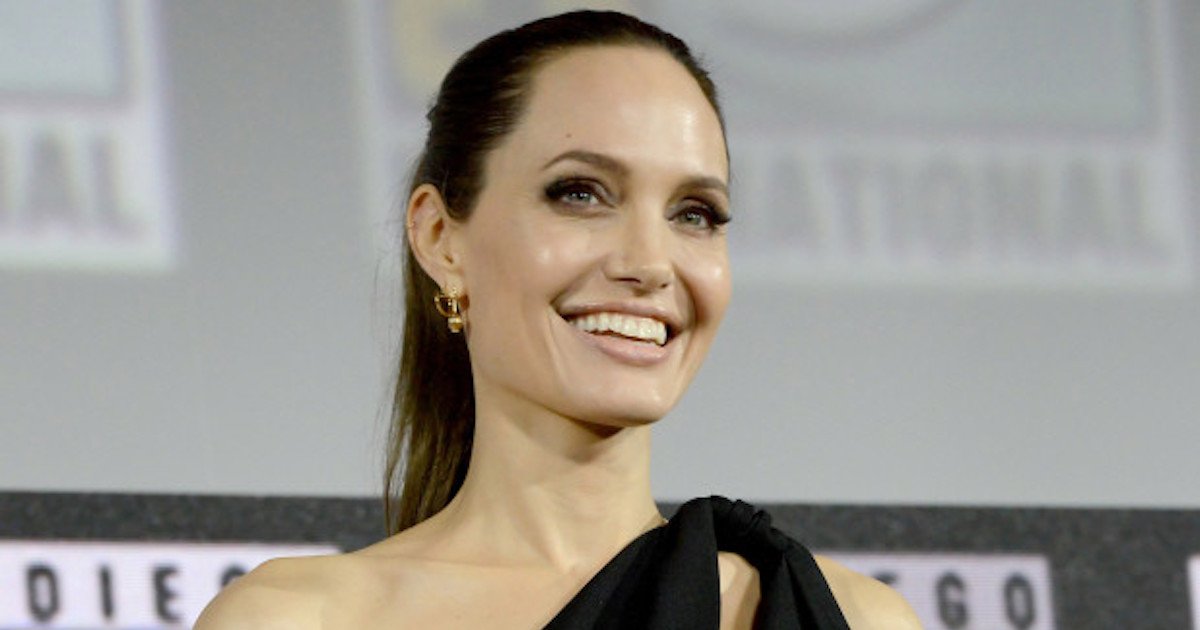Angelina Jolie is using her own experience with cancer to help others as they battle the disease. In 2013, when Jolie went public about her decision to undergo a preventative mastectomy because of an increased cancer risk — the 44-year-old actress brought an incredible amount of attention to the topic of cancer screening and prevention. After that immensely brave decision, Jolie has remained involved in the fight against cancer. Over the weekend, the Maleficent actress visited the Institut Curie — a leading cancer center in France — and met with families struggling with cancer, as well as doctors, to discuss some of the latest developments in breast and ovarian cancer research.
“It was a very moving, very human experience to see doctors from around the world coming together every day trying to find solutions to cancer, working alongside the very patients — some of them young children — who are undergoing treatment,” Jolie said in a statement.

Jolie’s Decision To Get A Preventative Mastectomy
Read MoreRELATED: WHAT ARE THE OPTIONS FOR WOMEN WITH A HIGH BREAST CANCER RISK?
Rather than watching and waiting, Jolie did make the decision to have her breasts removed — and two years later, she had her ovaries and fallopian tubes removed as well. After her surgery, what's known as the "Jolie effect," took hold, according to numerous studies, which recorded an increase in preventative mastectomies. Jolie’s decision to go public definitely had a big role in informing more women that cancer screening and genetic testing are incredibly important — especially if you have a family history of the disease (which Jolie did; her mother died of ovarian cancer at age 56, and an aunt died of breast cancer at age 61).
In the years since the surgeries, Jolie has stayed involved with cancer awareness — during this week’s visit to the French cancer center, the actress also said that she was particularly moved by the close bonds she observed between patients and doctors.

“I could see the close bond the doctors and scientific teams have with the patients and their families, who are battling cancer together with so much love and care,” Jolie said in a statement to People. “I was especially moved by a boy undergoing treatment who told me he had already decided to be a doctor when he grows up, so he can help the doctors he so admires."
While the doctor-patient relationship is certainly an important aspect of cancer care that many doctors in the U.S. emphasize to new patients, there are several differences in the way cancer — and particularly cancer screening — is handled in European countries.
How is Cancer Screening Different in Europe?
When it comes to breast cancer, Europe has slightly different guidelines than the United States does. For example, for women with an average breast cancer risk (this would rule out Jolie and those like her, due to the BRCA mutation), the European Commission Initiative on Breast Cancer (ECIBC) suggests that women ages 40 to 44 do not get mammograms. The American Cancer Society, on the other hand, recommends that women ages 40 to 44 have the option to begin yearly mammograms.
When it comes to the frequency of breast cancer screening, the ECIBC recommends that women ages 45 to 69 — for whom they do recommend regular screening — only get a mammogram every two to three years. Whereas the American Cancer Society recommends women ages 45 to 54 get mammograms every year — and keep up with testing at least every two years after that. The ECIBC website highlights how the organization does not recommend mammograms for average risk women under 45 due to the possibility of over-diagnosis and over-treatment — which is a concern internationally.
The balance between screening and treating is an issue doctors sometimes don’t see eye-to-eye on. In Jolie’s case, she and her medical team decided to act before any suggestion of cancer was detected in a mammogram. During this week’s visit to Institut Curie, Jolie also met with Professor Dominique Stoppa-Lyonnet, who was one of the first researchers to open a genetic consultation service specifically for people with a predisposition to breast cancer.
"This hereditary cancer potentially affects a huge number of families, and if we can inform women of the existence of these predispositions, our ability to care for high-risk patients will be improved," Professor Stoppa-Lyonnet told People.
She also credited Jolie with bringing international attention to the issue of genetic predispositions to cancer.
"Angelina Jolie's testimony in May 2013 regarding her choice of prophylactic mastectomy due to a BRCA1 alteration had a fantastic and positive impact on women who were wondering about their breast cancer risk," she added. "The demand for BRCA testing has doubled at the Institut Curie with a persistent effect. The discussion has been opened.”
Learn more about SurvivorNet's rigorous medical review process.


